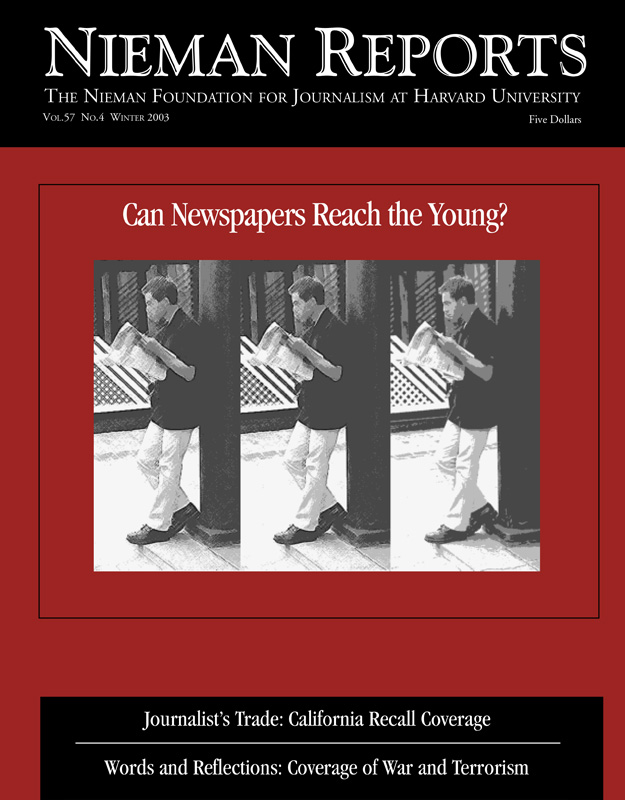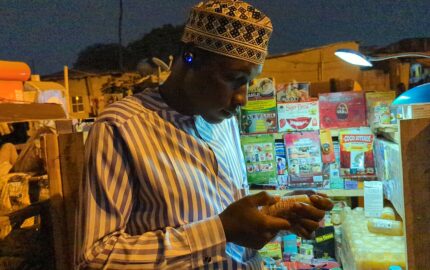December 15, 2003
Share this article

Can Newspapers Reach the Young?
Newspaper reading isn’t a daily habit for most young people. Instead they catch headlines on Web sites, share opinions on Weblogs, and see breaking news alerts along TV scroll bars. Nor do they think they should pay for news reporting. “Deliver the newspaper to me free, and I’ll take a look,” typical young readers tell focus groups as news organizations look for ways to unlock the mysteries of how to connect with these reluctant consumers. – Melissa Ludtke, Editor
Sun Yu, who for 12 years was a reporter and editor of the Chinese and English language editions of China Environment News, explores ways in which news coverage in China of the SARS epidemic affected how the government and media interacted. She describes the reporting work of China’s “independent publications” and also evaluates criticism of Western media’s “exaggeration of the health crisis” in which the coverage “focused too much on negative aspects and mixed this medical crisis in with political issues.”
Kwangchool Lee, bureau chief of the Korean Broadcasting System in Washington, D.C., reflects on the intensifying pressure for media reform in Korea. Since the February election of President Moo-hyun Roh—whose campaign was ignored and criticized by the major news organizations—calls for media reform have come from the president as well as the people. The issue now is how reform can happen. One thing is clear: “The people insist they do not want media reform to come from government, fearing that will damage democracy.”
Can Newspapers Reach the Young?
Newspaper reading isn’t a daily habit for most young people. Instead they catch headlines on Web sites, share opinions on Weblogs, and see breaking news alerts along TV scroll bars. Nor do they think they should pay for news reporting. “Deliver the newspaper to me free, and I’ll take a look,” typical young readers tell focus groups as news organizations look for ways to unlock the mysteries of how to connect with these reluctant consumers. – Melissa Ludtke, Editor



